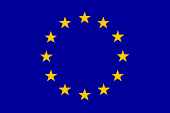
Recent years have seen an influx of medical technologies capable of remotely monitoring the health and behaviours of individuals to detect, manage and prevent health problems. Known collectively as ‘Personal Health Monitoring’ (PHM), these systems are intended to supplement medical care with health monitoring outside traditional care environments such as hospitals. In the face of ageing demographics across the EU, such technologies are seen as a promising way to close the predicted gap between healthcare demand and resources. Medical care and monitoring currently provided by humans may be supplemented by technological monitoring, creating new ways of delivering healthcare to the elderly, homebound, chronically ill and healthy alike. However, the implications of introducing technological monitoring into healthcare need to be considered in greater detail before the technologies are widely used. PHM allows for greater collection of personal health data about users, which may raise ethical concerns. As an emerging technology with the potential for widespread usage across Europe and beyond, the opportunity remains for PHM to be developed and deployed responsibly by adhering to the principles of Responsible Research & Innovation (RRI). To contribute to this process an interview study with potential users and healthcare professionals was carried out in the UK. Twenty-one stakeholders were interviewed from patient groups and healthcare professionals representing medical conditions targeted by PHM: diabetes mellitus, hypertension and dementia. A series of recommendations on how to address the ethical implications and concerns of stakeholders are provided for members of industry responsible for developing PHM devices and services. Nine recommendations were identified:
- Offer devices and services with user feedback and recommendations for better health
- Limit user access to raw monitoring data
- Offer multiple levels of summarised feedback to users
- Create open channels of communication with users
- Do not view monitors as a replacement for staff
- Give users control over their devices
- Capture contextual information to support monitoring data
- Take a minimal approach to contextual data
- Discuss the extent and implications of monitoring with users
The work described here is a first broad step in the RRI process which can contribute to the development and deployment of any PHM devices and services. The study can be understood as a broad ethical foresight study achieved through engagement with PHM stakeholders, including patients, doctors and healthcare organisations. Each of the five RRI principles described by the European Commission was adhered to (see: Appendix 1), providing an example of how development and deployment can be performed responsibly with the involvement of stakeholders.



 Unless otherwise stated, all materials created by the FOSTER consortium are licensed under a CREATIVE COMMONS
ATTRIBUTION 4.0 INTERNATIONAL LICENSE.
Unless otherwise stated, all materials created by the FOSTER consortium are licensed under a CREATIVE COMMONS
ATTRIBUTION 4.0 INTERNATIONAL LICENSE.
 This project has received funding from the European Union’s Seventh Framework Programme for research,
technological development and demonstration under grant agreement no 612425.
This project has received funding from the European Union’s Seventh Framework Programme for research,
technological development and demonstration under grant agreement no 612425.